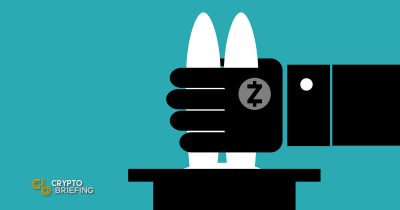Zcash Is All Ears Over Coinbase Privacy Concerns

Share this article
Cryptographic technology has advanced in 2018, bringing the crypto community closer to “privacy for everyone,” according to a recent presentation by Zcash founder Zooko Wilcox.
Considering that the Zcash cryptographers “pioneered the use of zero-knowledge proofs,” with Zcash representing the first application for the technology two years ago, it’s fitting that ZEC has become synonymous with privacy.
But now that Zcash has scored a listing on KYC-compliant U.S. exchange Coinbase, you may be wondering if your transactions are truly anonymous, unlike the Bitcoin protocol from which ZEC got its start. The notion that there was a tradeoff isn’t too far-fetched.
Dovey Wan, who is the founding partner of crypto investment fund Primitive Ventures, said in a tweet she has asked the Zcash founder numerous times, “why not remain anonymous since inception?” and “why seek [an] enormous amount of compliance for a privacy coin?” The answer became apparent when Coinbase decided to list ZEC, which will help the currency achieve mainstream status.
And perhaps the crypto community has had a shortsighted view of privacy all along. As Wilcox tweeted:
Privacy isn’t about isolation — it’s about community. But with consent. You get to choose who’s watching when you let down your hair. You get to choose who’s around the table when you tell your story. Privacy is about consent.
Privacy and Crypto Go Together Like Chocolate and Peanut Butter
Zcash gets its privacy from the zk-SNARK technology.
To appreciate how important privacy has been not only to the Zcash community but crypto in general, it helps to go back as early as 2013 when privacy was among the chief motivations for Bitcoin developers. Privacy was the defining feature in projects like Zerocoin, but the technology was too cumbersome to make its way into a vital Bitcoin upgrade.
Meanwhile, at the 2013 San Jose Bitcoin conference, the scientists behind the SNARK tech met the scientists behind Zerocoin, leading to a collaboration that Zooko compared to when “chocolate goes well with your peanut butter.” The new pairing “solved the problem of transaction times,” Zooko explained in a recent podcast.
Pulling a Rabbit Out of Your Hat
zk-SNARKs are part of the knitting of the Zcash project, but even Wilcox once revealed that he wasn’t in the loop about zero-knowledge proofs and instead left that to his team of cryptographers. Since that time, Zcash has upgraded its mainnet to version 2.0, slashing the transaction times for zero knowledge proofs from 37 seconds to 2.3 seconds. Wilcox, the student, has become the master.
zk-SNARK stands for “Zero-Knowledge Succinct Non-Interactive Argument of Knowledge,” according to the Zcash website. It’s a proving system that adds an extra layer of privacy to the process that typically surrounds a BTC or ETH transaction, a layer of confidentiality that Wilcox suggests Satoshi might have included if SNARKs had been invented in 2008.
While complex, the formula has a bit of magic to it that resembles pulling a rabbit out of a hat. The magician proves that there is no back door to the hat and then pulls a rabbit out of nowhere. You know there is a magician and a hat; even though you don’t know exactly where the rabbit came from, you can see with your own eyes that it is real.
In a non-zero-knowledge-proof transaction, the BTC or ETH miner has access to the sender’s transaction history to prove that the funds are not being double-spent. But with a zero knowledge proof, the transaction is encrypted.
A user presents the transaction in which they are looking to transfer some amount, but they don’t say how much. Consider the amount hidden inside a private envelope. The envelope transfers to the miner but it doesn’t say anything about the sender or the receiver. The content is hidden, but is accompanied by what Wilcox refers to as a “magic stamp,” which is the zero-knowledge proof.
The miner then tests the magic stamp, which convinces them that the zero-knowledge proof is valid. If it weren’t, the sender would not have been able to produce this magic stamp. And in the end, the miner learns the meaning of “zero” behind zero-knowledge proof as they learn only the necessary information and nothing more to prove that the amount being transferred is in fact valid.
Zcash and Monero
Not surprisingly, Zcash and Monero, both of which are touted as privacy coins, have some key features in common. For instance, ZEC and XMR are both open source. Both coins are forks of other cryptocurrencies — Bitcoin and Bytecoin for ZEC and XMR, respectively. And both coins use mining-fueled proof-of-work algorithms for network validation — Equihash for Zcash and CryptoNight for Monero. And while the Zcash motto is “all coins are created equal,” perhaps that’s less so for privacy coins.
The thing to remember about Monero is its popularity on the dark web where nefarious activities ranging from drug dealing to crypto-jacking hide. As Monero developer Riccardo Spagni once said in response to a rise in illegal activity on the dark web:
That uptick among people who really need to be private is interesting. If it’s good enough for a drug dealer, it’s good enough for everyone else.
Zooko to the Moon
Incidentally, Wilcox and Coinbase CEO Brian Armstrong share a history. The Zcash founder was once offered a job as Coinbase’s Chief Security Officer, which he declined because he had too much going on already.
It seems he was destined for tech greatness, with calls from the Zcash community for Wilcox to launch cubesats, the small satellites used by Elon Musk’s SpaceX venture.
Either that, or they must believe that he has his head in the clouds… because his hat was full of rabbit.
The author is currently invested in ETH.
Share this article
